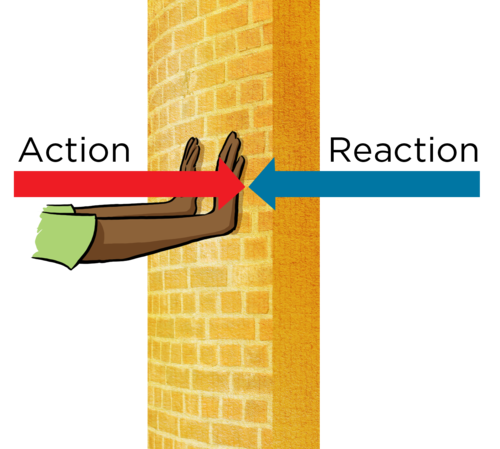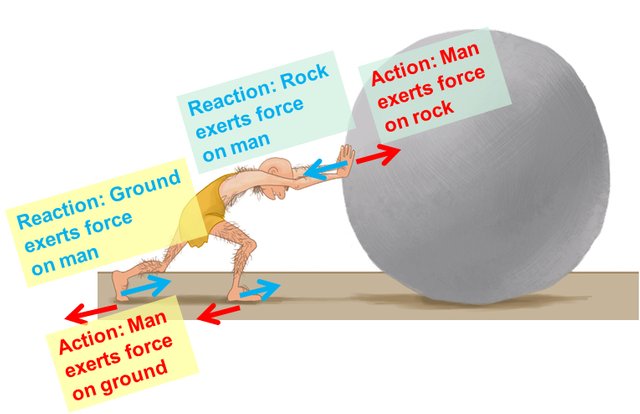You are viewing a single comment's thread from:
RE: If you believe a rocket can work in space, then you do not understand Newton's 3rd law at all...
That's how I would explain how rockets fly using Newton's third law:
The action:
The rocket throws tons of fuel in the opposite direction of flight.
The reaction:
The rocket accelerates in the direction of flight and gets faster.
→ Nothing else is needed to explain why rockets fly!
.
Now tell me:
Is there a flaw in my explanation?
(If yes give me a simple explanation of it, please.
The explanations in the video seem counter-intuitive to me.)
A flaw in those five lines should be easy to find for you, right?
Reaction can only take place when there is resistance to action.
Earths atmosphere acts as a resistance so rockets exhaust can push off against it resulting in rocket flying off. In space there is no resistance due to it being vacuum so action from rockets exhaust can't cause reaction so rocket will get stranded in space. Its that simple.
The problem is nobody takes resistance into account, most people seem to think action reaction is all that takes place.
This picture for example:
All you see is action and reaction being shown in the picture which is slightly misleading. What most people don't seem to get is that reaction is taking place because the wall is resisting the action.
But where is the resistance when I throw a ball?
The atmosphere is so thin that it doesn't seem to have any effect on the ball, but still I feel a stronger reaction when pushing him, than when pushing through air with my bare hands.
The atmosphere is still acting as resistance slowing down the thrown ball, also there's gravity which is also acting as resistance.
The wall in the above image, you can replace it with ball, ground, earths atmosphere, etc. which will be your resistance in order for opposite reaction to take place.
But how can there be a difference in force between when I through a ball and when I move my hand as if I was throwing a ball?
The air resistance should be the same in both cases.
What kind of ball are we talking about?
The ball has a weight and so do you. The difference in weight affects the result.
Once you throw the ball, earths atmosphere and gravity acting as resistance slowly slows down the ball.
Once you move/push the ball (assuming its a heavy ball), the ball itself acts as resistance (just like the wall in the above image) due to its weight and delivers equal and opposite reaction. The difference in balls weight and your weight affects the result. Also you are pushing against the ground while moving/pushing the heavy ball. The ground resists and delivers equal and opposite reaction.
Replace the rock in the image with heavy ball:
But the air resistance seems way to weak to create all the reactive force I experience when throwing for example a bowling ball.